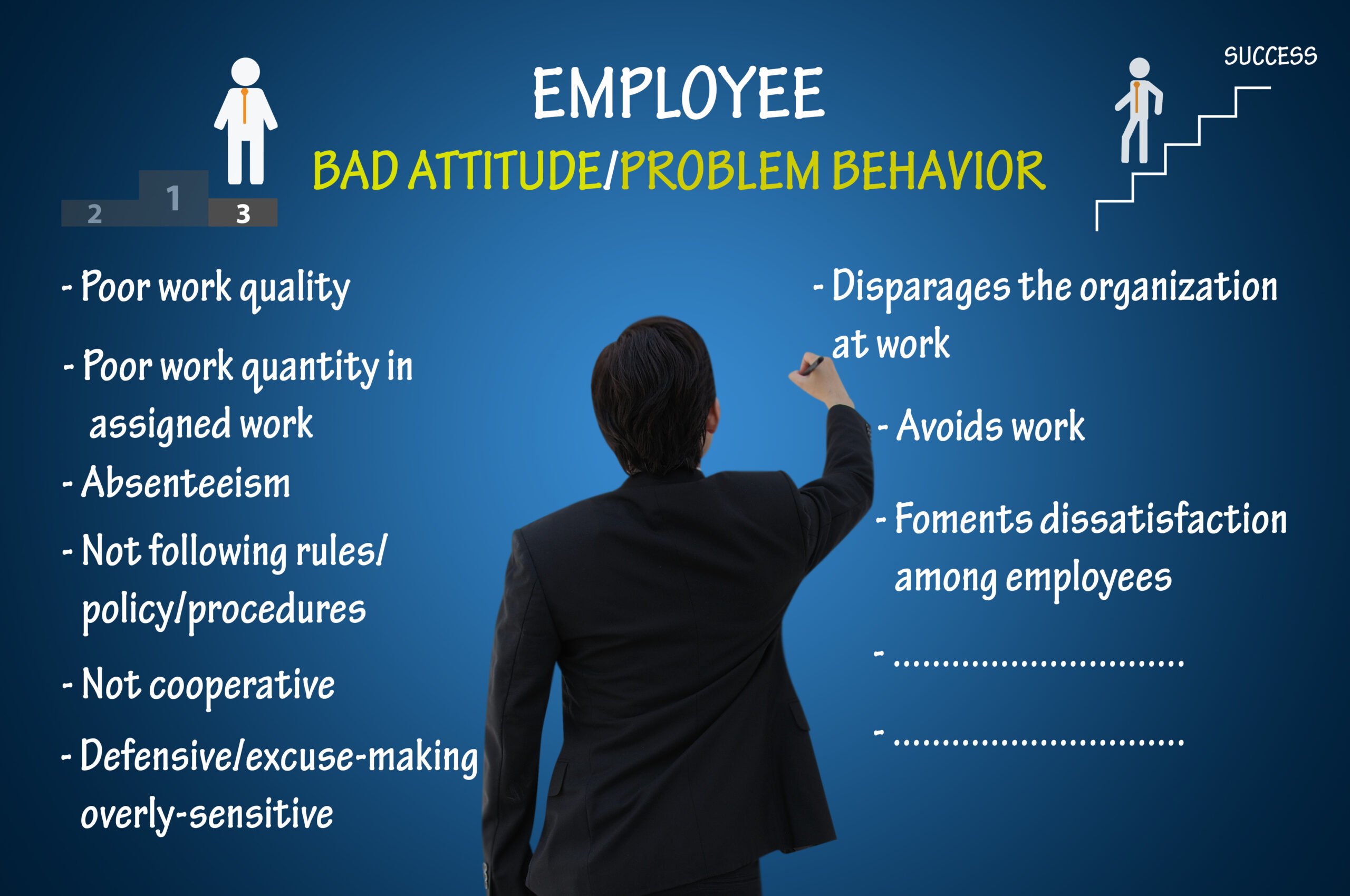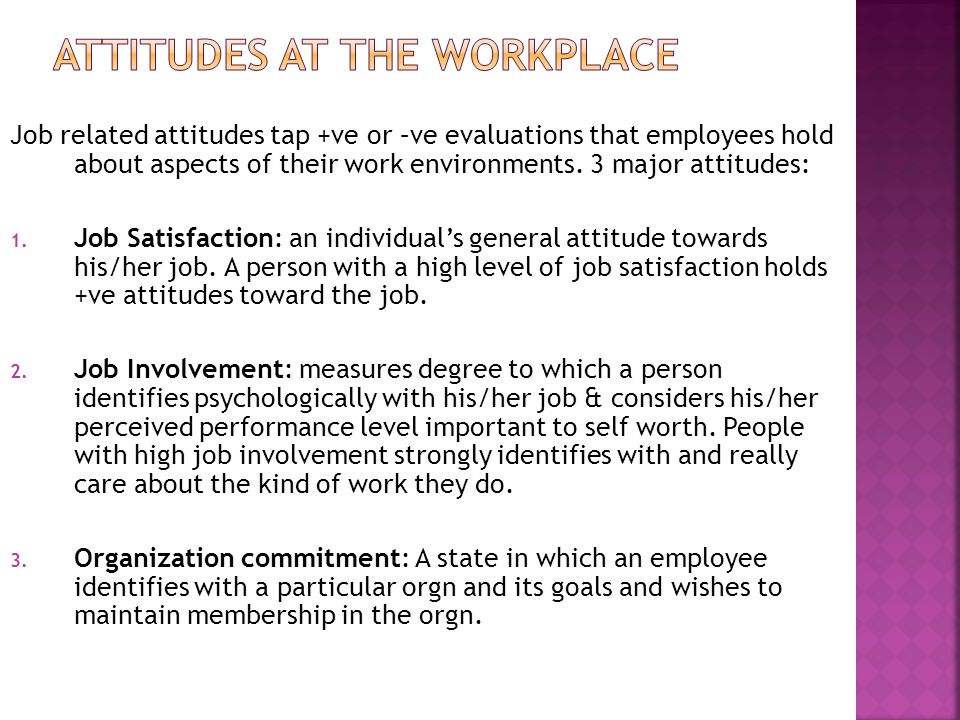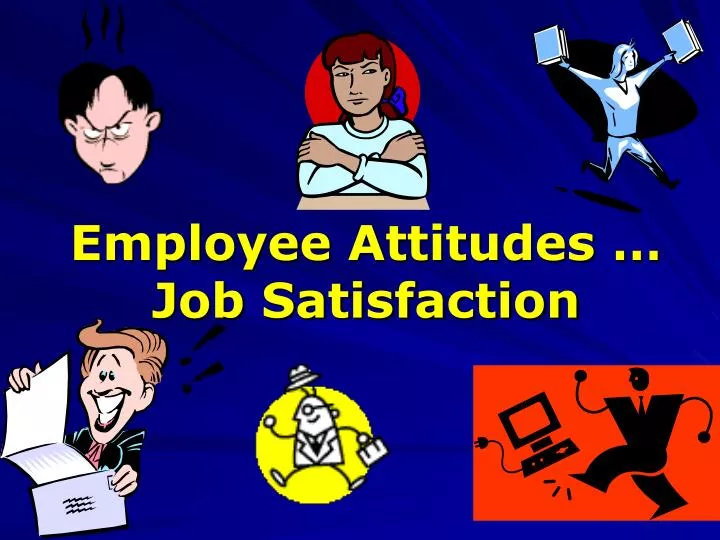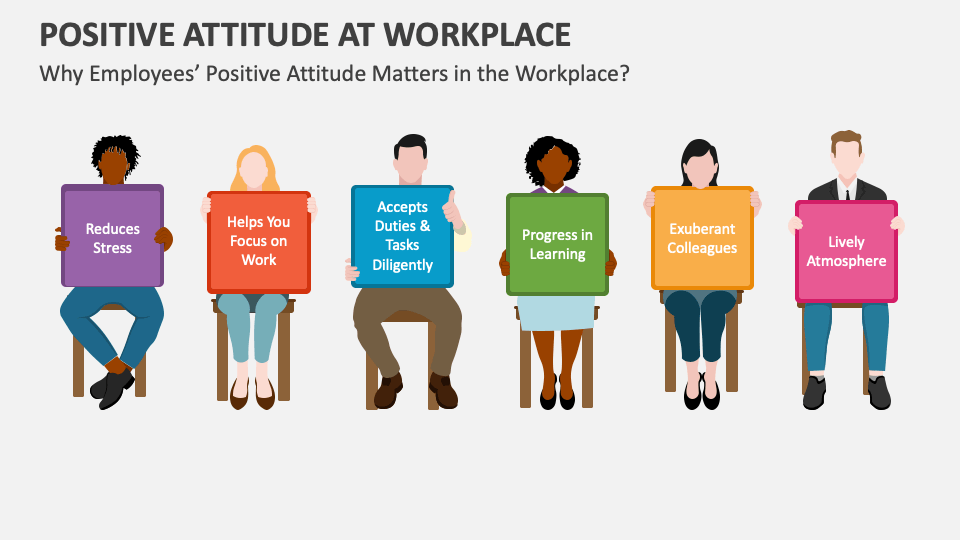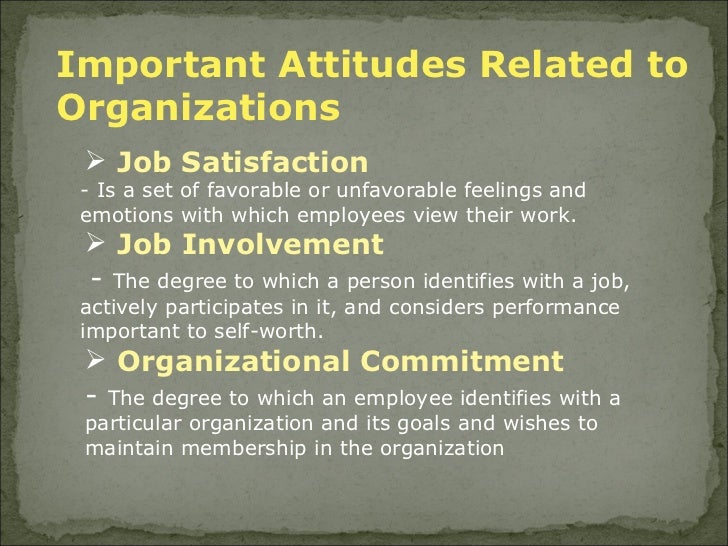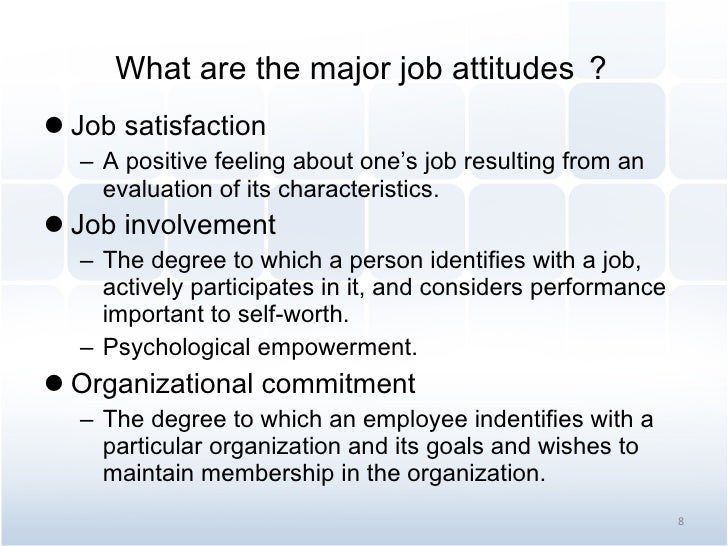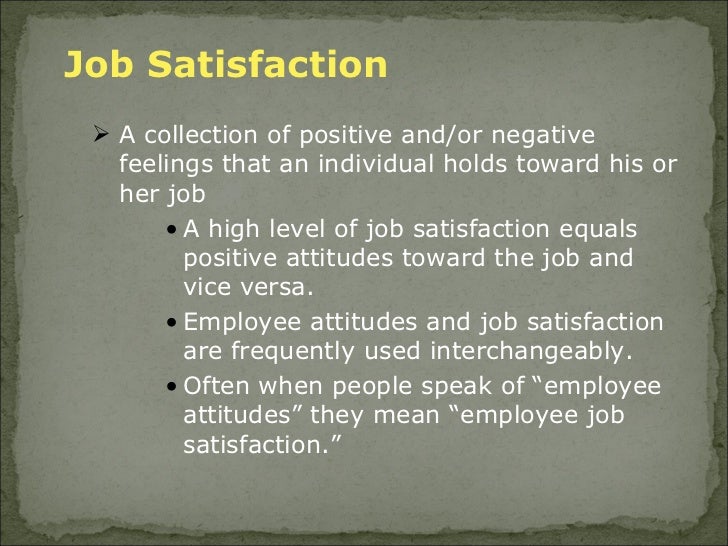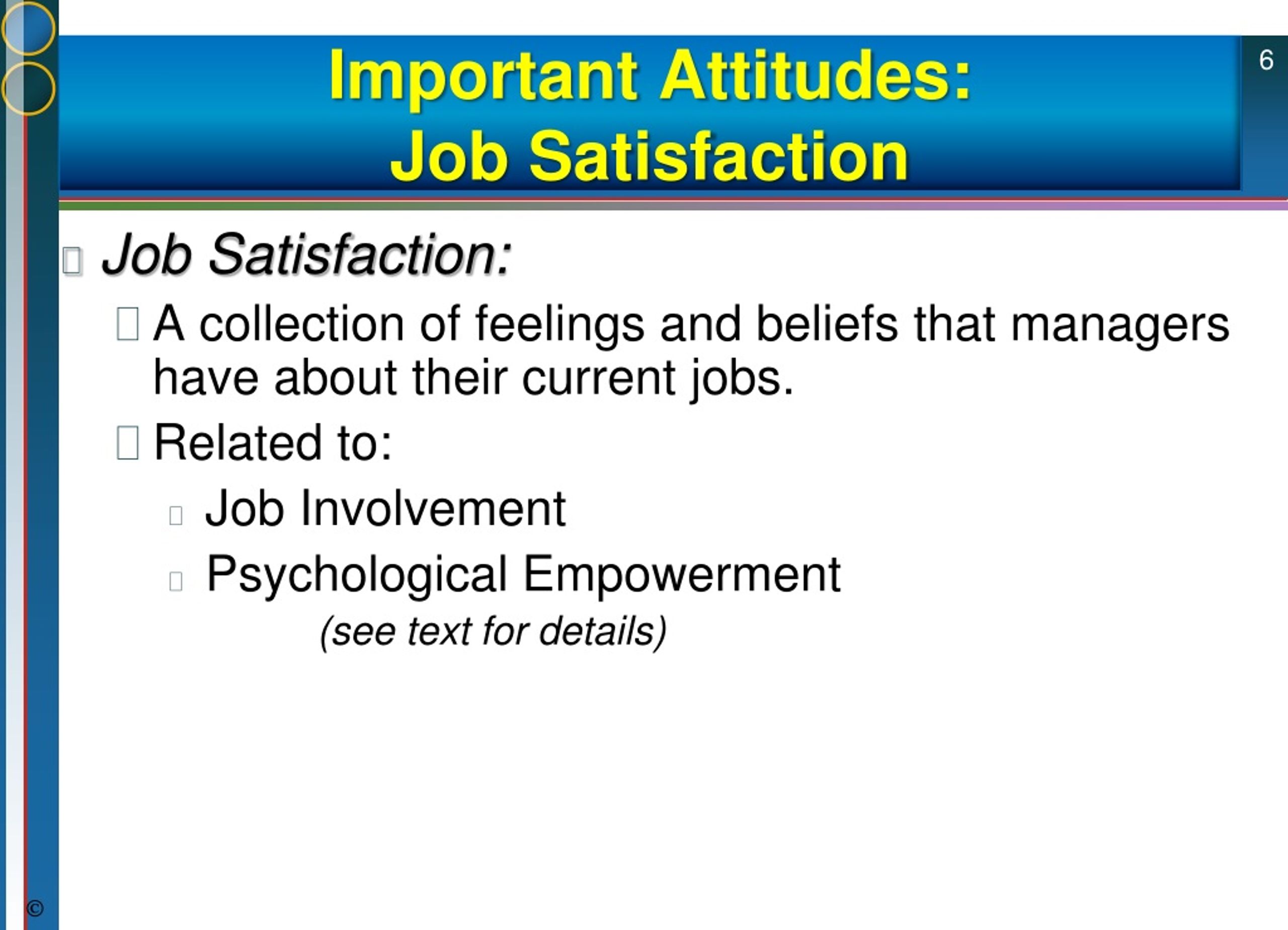Is An Employees Attitude Or Feeling About The Job

In today's competitive job market, employers are increasingly focusing on more than just skills and experience. A growing debate centers on whether an employee's attitude and feelings about their job – often referred to as job satisfaction – hold greater sway than previously acknowledged.
This shift has significant implications for both employers and employees, impacting everything from productivity and retention to overall company culture. The question is no longer simply about what an employee can do, but how they feel about doing it.
The Core of the Debate
The core of the discussion revolves around the measurable impact of job satisfaction. Experts argue that a positive attitude fuels greater engagement, leading to increased efficiency and higher quality work.
Conversely, a dissatisfied employee is more likely to be less productive, experience higher rates of absenteeism, and contribute to a negative work environment. These factors directly impact a company's bottom line.
Key Factors Influencing Employee Sentiment
Numerous factors contribute to an employee's overall sentiment towards their job. These include fair compensation, opportunities for growth, work-life balance, and a supportive work environment.
According to a 2023 report by the Society for Human Resource Management (SHRM), feeling valued and respected is a key driver of job satisfaction. SHRM emphasizes that a sense of purpose and alignment with company values also plays a crucial role.
Additionally, clear communication, opportunities for professional development, and recognition for achievements contribute significantly to a positive employee experience.
Measuring the Impact
Quantifying the impact of employee attitude can be challenging, but studies have shown a clear correlation between job satisfaction and key performance indicators. Companies with high employee engagement scores typically report higher profitability and customer satisfaction rates.
A Gallup poll consistently reveals that engaged employees are more productive, more innovative, and less likely to leave their jobs. This translates to reduced turnover costs and improved organizational performance.
However, some argue that prioritizing attitude over skills can be detrimental. There is concern that focusing solely on employee happiness might lead to overlooking crucial competencies or avoiding necessary performance management.
The Employer's Role
Employers are increasingly investing in initiatives aimed at improving employee morale and job satisfaction. These include offering flexible work arrangements, providing wellness programs, and fostering a culture of open communication and feedback.
Many companies are also implementing employee recognition programs and creating opportunities for team-building activities. The goal is to create a work environment where employees feel valued, supported, and motivated.
According to a recent LinkedIn study, companies that prioritize employee well-being are more likely to attract and retain top talent. This underscores the growing recognition of employee attitude as a critical competitive advantage.
The Human Element
Beyond the statistics and reports, the human element of this debate is paramount. A positive work environment can have a profound impact on an employee's overall well-being, extending beyond the workplace.
Employees who feel valued and supported are more likely to experience lower stress levels, improved mental health, and a greater sense of purpose. Conversely, a negative work environment can contribute to burnout, anxiety, and decreased overall quality of life.
Consider Sarah, a software engineer who recently left her previous job due to a lack of recognition and a toxic work environment. "I felt like my contributions were never valued," she shared. "It took a toll on my mental health, and I knew I needed to make a change."
Conclusion
The discussion surrounding the importance of an employee's attitude and feelings about their job is far from settled. While skills and experience remain essential, the growing recognition of the impact of job satisfaction is undeniable.
Employers who prioritize employee well-being and create a positive work environment are more likely to attract, retain, and engage top talent. Ultimately, a happy and motivated workforce translates to improved organizational performance and a more sustainable business model.
Moving forward, a balanced approach is needed, one that recognizes the importance of both skills and attitude, ensuring that employees are not only capable but also motivated to perform at their best.

